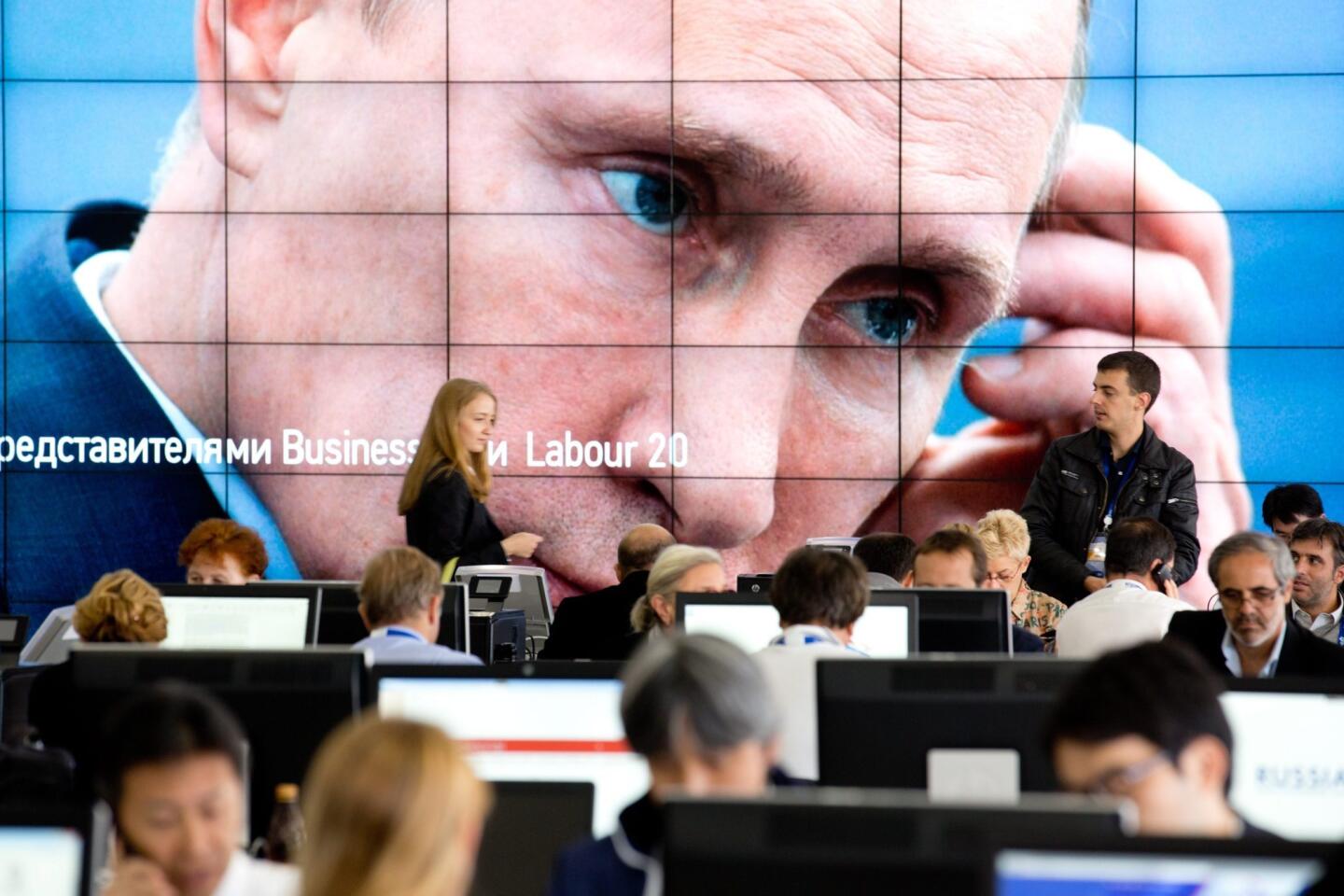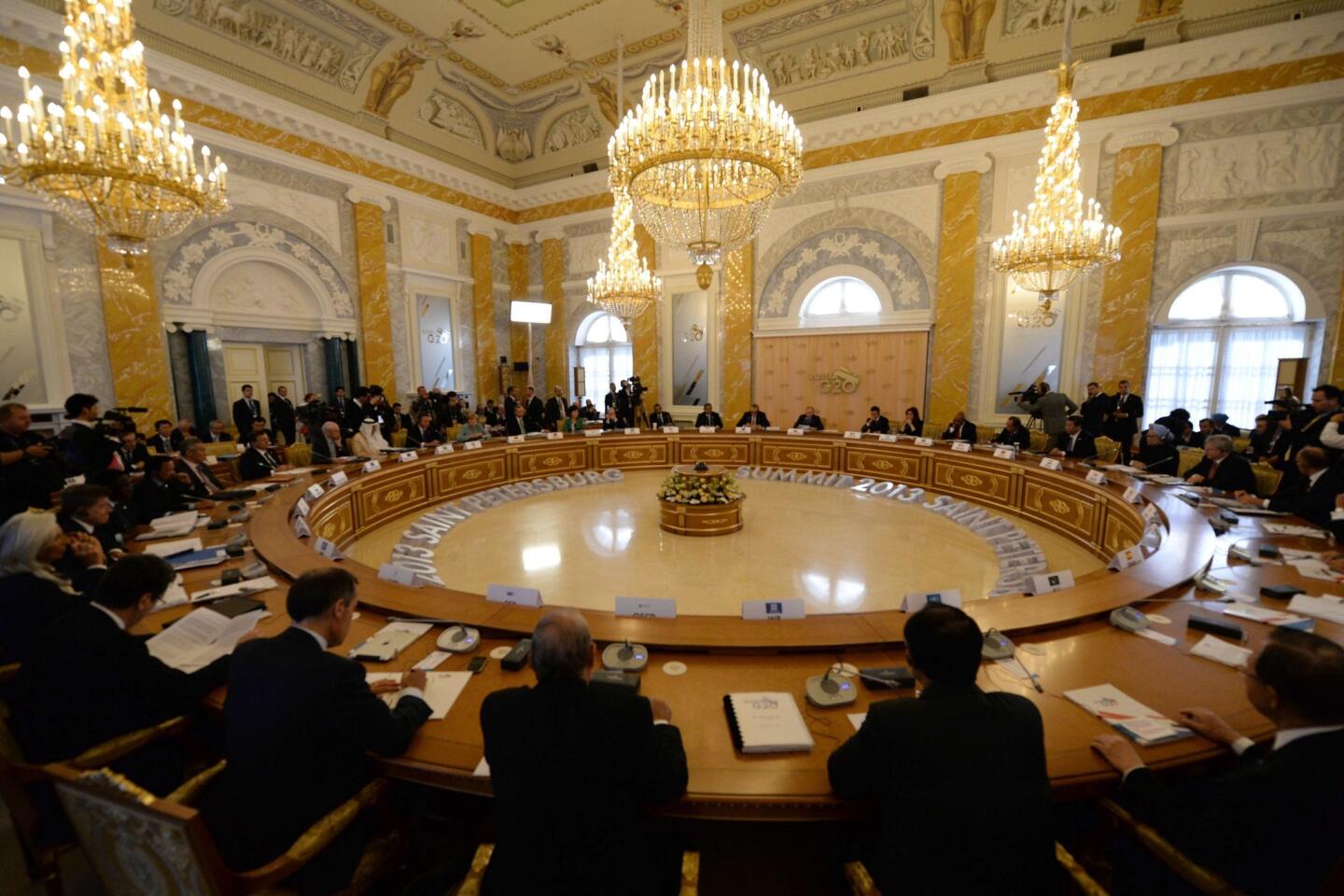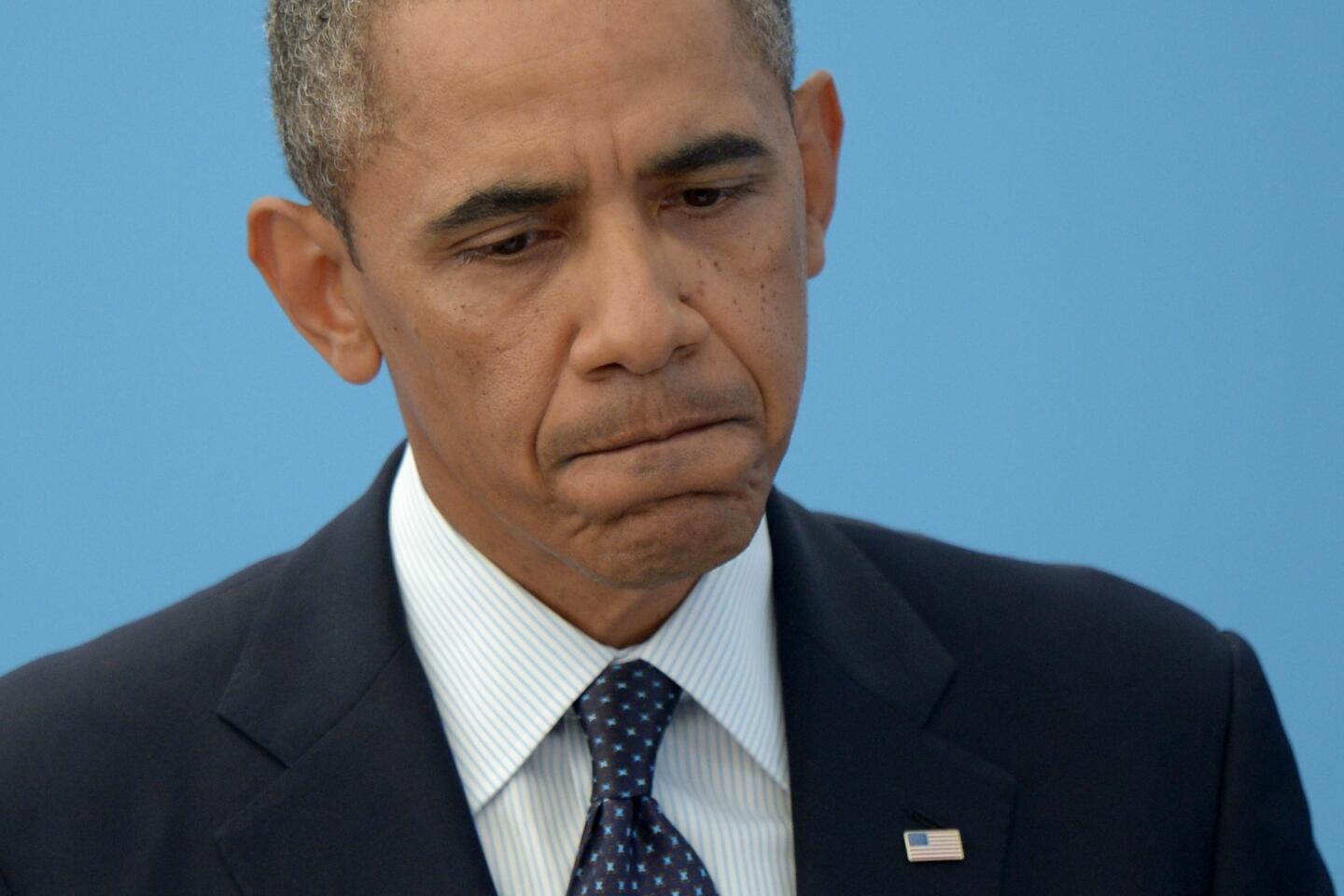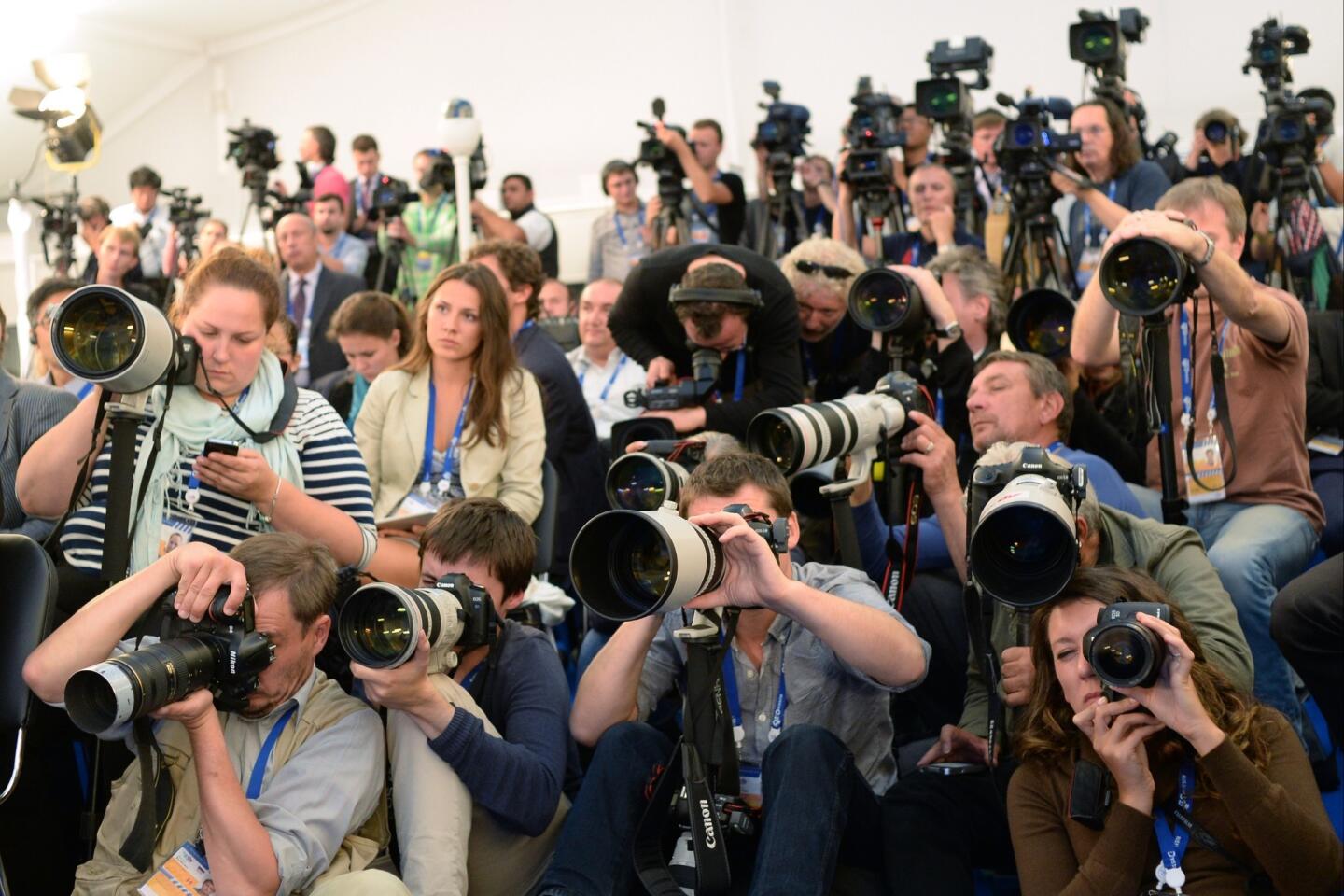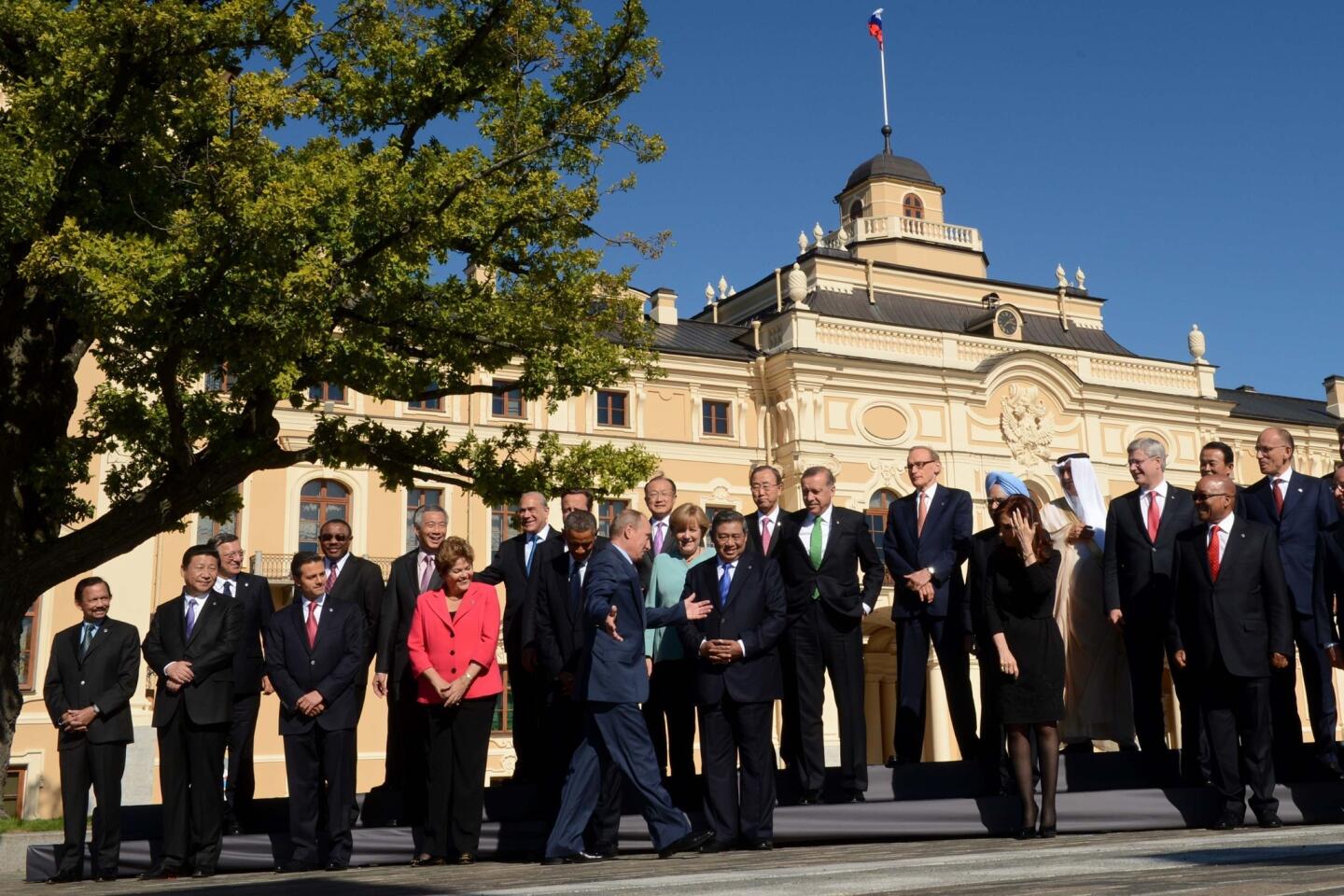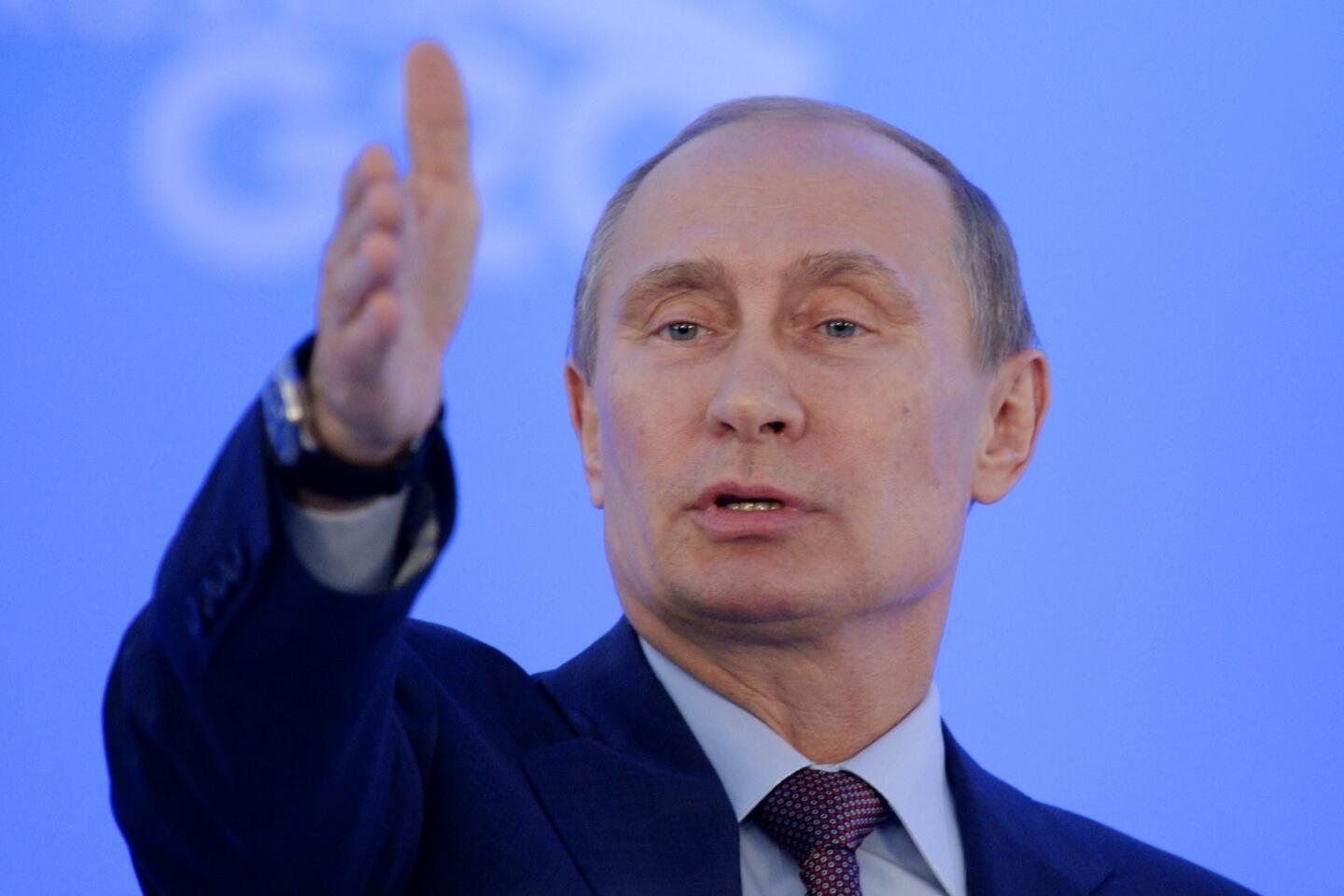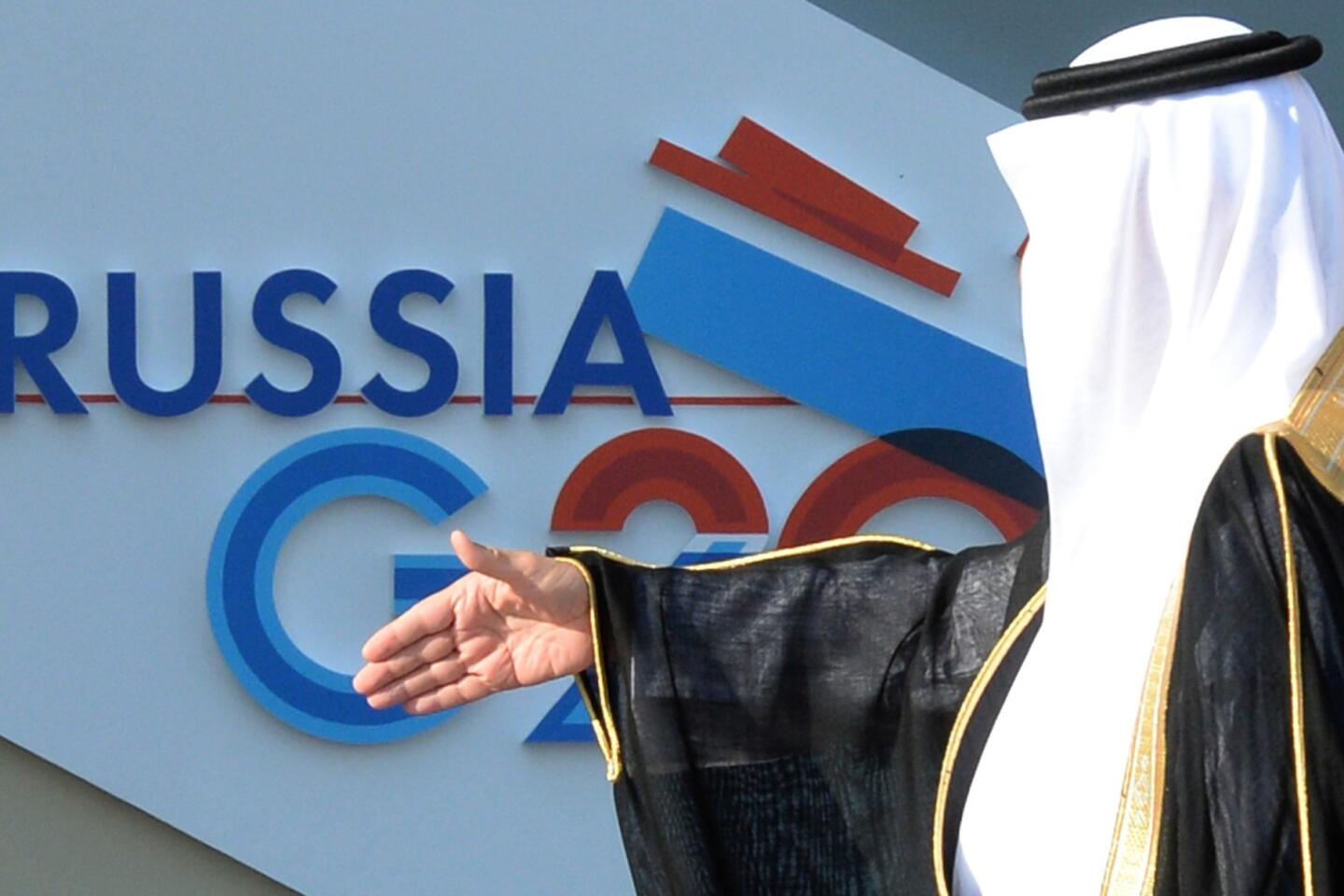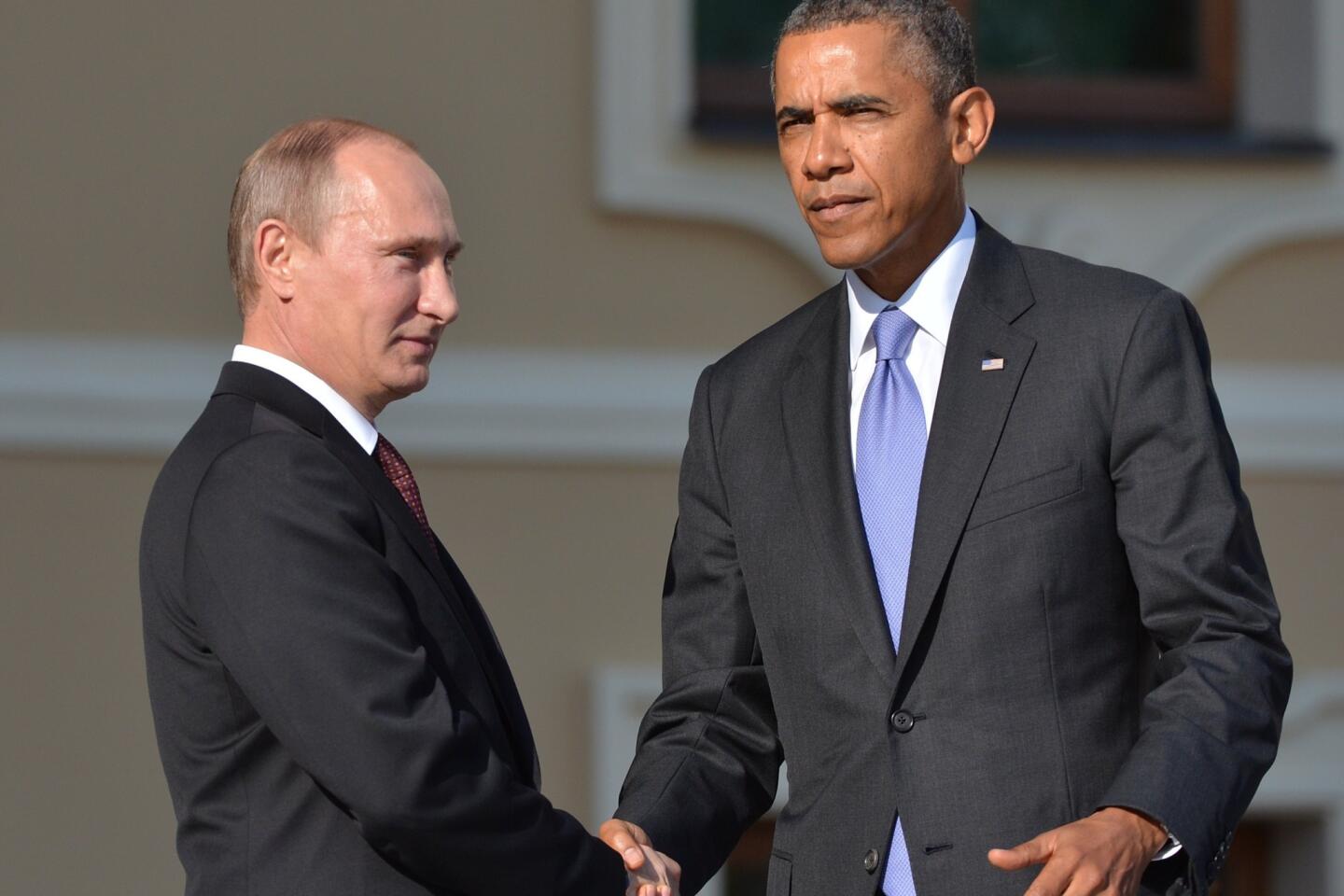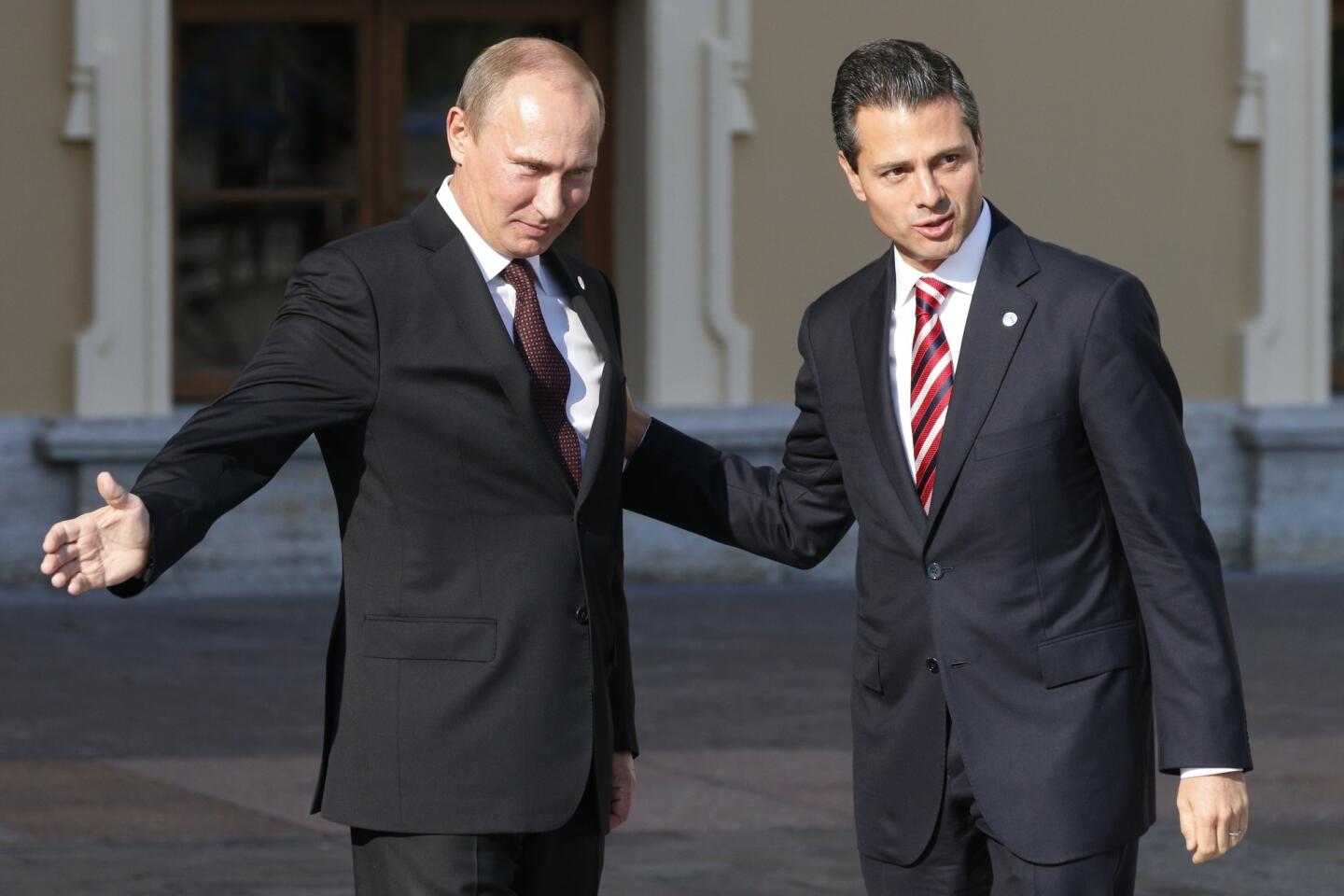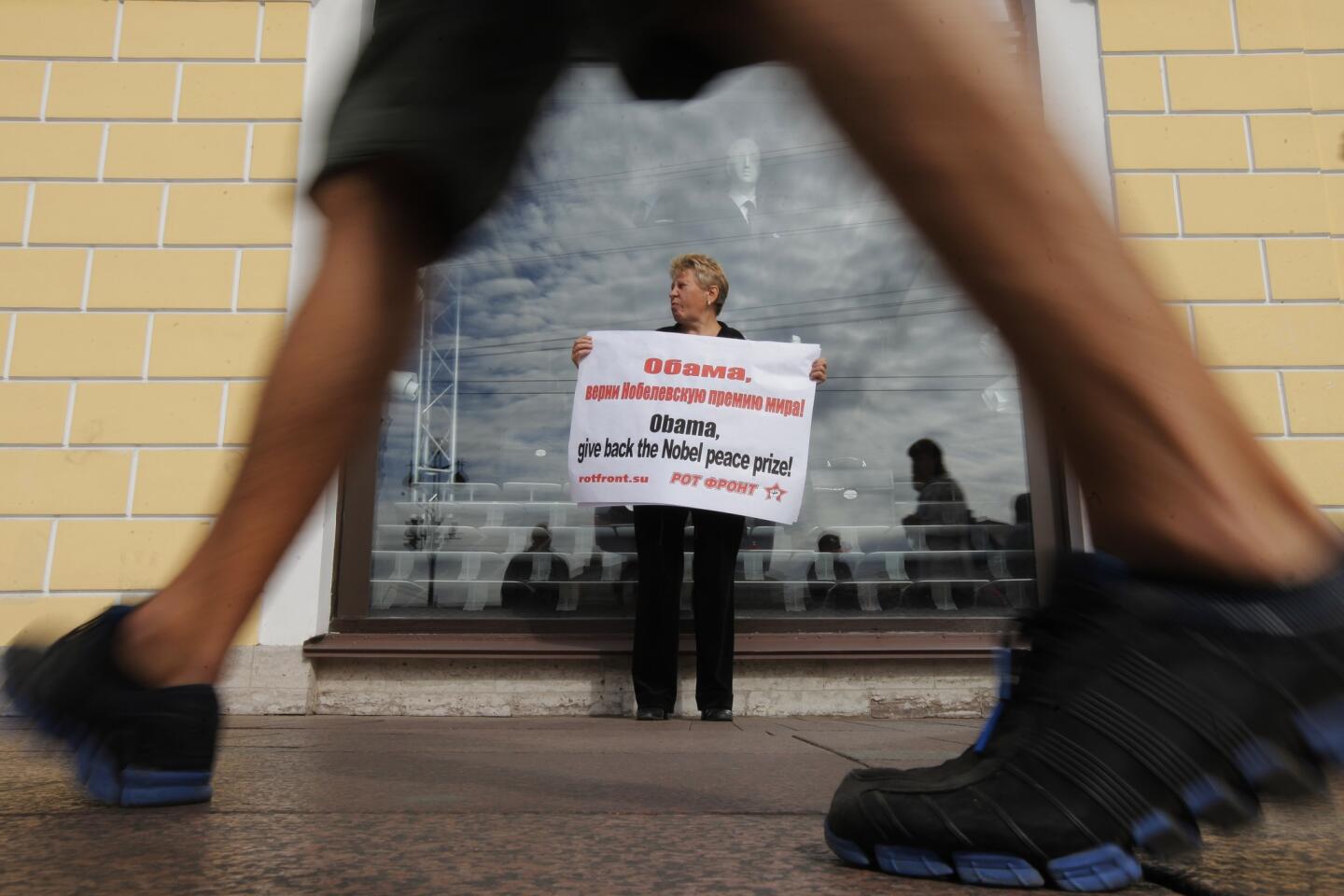What will the St. Petersburg G-20 summit be remembered for?
ST. PETERSBURG, Russia -- Thereâs been a lot of passionate talk and chatter here among G-20 leaders, but it seems to have been mostly about the conflict in Syria and whether they were willing to back President Obamaâs call for a military strike on the Syrian regime.
Indeed, this yearâs G-20 meeting, which wasnât expected to produce a lot of concrete commitments in the first place, is likely to be remembered as the summit on Syria. Yet thereâs been no breakthrough on the Syria question, and neither were the leaders of the Group of 20 major economies likely to agree on a lot of new substantive actions or statements to strengthen the global economy, the groupâs main purpose.
That said, this gathering has revealed some things about the state of relations and whatâs happening in the global economy. Here are a few takeaways:
--A very low point in U.S.-Russia relations: Apart from leading a vigorous opposition to Obamaâs bid for swift military action in Syria, Russian President Vladimir Putin and his entourage made their feelings toward the Americans clear. It wasnât just the cool reception that Obama got when he arrived in St. Petersburg -- he was met at the airport by three low-ranking officials.
In briefings, Russian officials also made a point to jab the U.S. for failing to make good on the G-20 pledge to reform the International Monetary Fundâs voting structure. (Congress hasnât taken action on it.)
TRANSCRIPT: Obamaâs remarks on Syria
And after a meeting with leaders of other major emerging countries, Putinâs spokesman, Dmitry Peskov, said the group âclearly expressed discontentâ over the recent disclosures of government digital surveillance, a reference to the leaks of U.S. spying programs by the American fugitive Edward Snowden, who happens to be taking refuge in Russia.
--Chinaâs rise on the international stage: It wasnât long ago that Chinese officials said little or nothing during such major international forums. They rarely gave news briefings, and when they did, it was just for the Chinese media.
But at this yearâs summit, Chinese officials were among the first to hold briefings to air their opinions on everything from a U.S.-led strike in Syria -- it would hurt the global economy, said Vice Finance Minister Zhu Guangyao -- to the lionâs share that Beijing has said it would contribute to a new rainy-day fund to protect emerging financial markets from currency losses.
--Germanyâs great cover: A major goal of the G-20 has been to achieve a better balance between those countries running big deficits, namely the U.S., and others with large surpluses in their trade and current accounts. In past years, most everybody pointed fingers at China.
But Chinaâs current-account surplus, as a share of its economy, has fallen sharply since the recession. Meanwhile, Germanyâs surplus has continued to grow, about double Chinaâs ratio. Yet nobody, including the U.S., has been making much of a stink about this. One factor is that Germanyâs trade activity is sometimes lumped in with the 16 other members of the Eurozone, and when seen this way, the picture doesnât look so bad because other euro countries are running large deficits.
FULL COVERAGE: The debate on Syria
ALSO:
Troubles in emerging markets may dominate G-20 summit
ECB President Mario Draghi âvery cautiousâ on Eurozone revival
Obama gets cold shoulder from Putin, but will seek backing elsewhere
More to Read
Inside the business of entertainment
The Wide Shot brings you news, analysis and insights on everything from streaming wars to production â and what it all means for the future.
You may occasionally receive promotional content from the Los Angeles Times.
